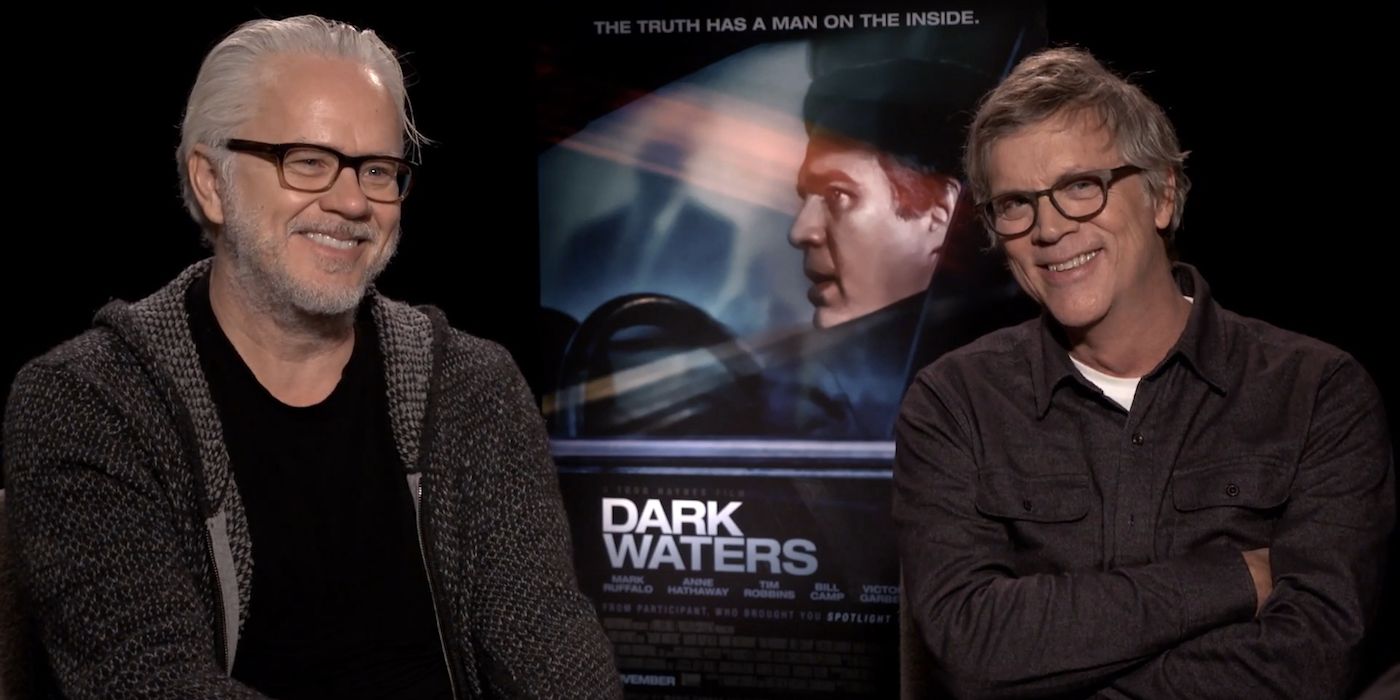Americans are conditioned to see criminals as unwashed muggers and scruffy deadbeats, but the biggest criminals in the world wear suits and ties as they poison the masses with toxic chemicals they sell in everyday products. Such is the story of DuPont chemicals, whose teflon products have been poisoning consumers for over 50 years. A young lawyer named Rob Bilott caught onto their scheme and pledged to do whatever it took to hold them accountable for their actions. Bilott’s tale is documented in the new movie, Dark Waters.
Mark Ruffalo stars as Bilott, while Tim Robbins plays his boss, Tom Terp, a man driven by fiduciary duty to his law firm who nonetheless agrees to help Bilott do the right thing. The film is directed by Todd Haynes (Carol, Wonderstruck), who uses the film to expose the truth of DuPont’s crimes in an effort to fight back against their attempts to dismiss the scientific findings that prove their malicious actions. When corporations have so much money and so much power, it takes an extraordinary effort to push back against their capitalistic might. Fortunately, Dark Waters is an extraordinary film.
At a New York City press day for Dark Waters, Tim Robbins and Todd Haynes sat down with Screen Rant to discuss their work on the film, and the steps that are being taken to punish DuPont and avenge their countless victims. Dark Waters is in theaters now, and Rob Bilott’s non-fiction account of the case, Exposure, is available at bookstores everywhere.
Hi! So this movie is fantastic. There’s one scene, in particular, where I wanted to just stand up and cheer. It’s your big moment where you say something along the lines of, “God damn it, this is why people hate lawyers!” It’s all this legalese that people use, that lawyers use to justify these horrible acts of… Imperialistic capitalism, I don’t know what the word is.
Tim Robbins: Corporate crime.
Corporate crime. What is the line at which someone has to put their hands down and go, “Damn it, we have to do the right thing.”
Tim Robbins: It’s different for different people. Hopefully, this movie will inspire those in positions of power to know what their bottom line is, and to take a stand themselves.
Is that part of why you wanted to do this movie?
Todd Haynes: Oh yeah. The movie was an opportunity to tell a story. A true story, an ongoing story. We’re now at the twenty year mark of the battle that Rob Bilott, that sort of accidentally stumbled into his lap in 1998, while working as a defense attorney in downtown Cincinnati. And working within the regulatory culture and believing that there was a good way for industry and regulation to coexist. And I think that’s pretty much Tom Turp’s orientation, as well, the character Tim plays in the movie. And they thought at first, no, there’s got to be a mistake here. We can figure this out, we know these DuPont guys! In a way, that very premise makes the story so much more interesting. It’s not the obvious… Bleeding heart liberal is gonna take on the system and has it out for them and already know what the end result, what they’re looking for, is, a sense of massive corruption. He is methodical and resistant. It’s very much about the process of discovery and what do you do about it? Especially when there’s no obvious legal tools at your disposal to take on a company this massive, who has all of the science walled off within their own campuses right? And no one who understands what this chemical is who lives outside of the control and influence of a company that big.
It’s baffling. While you’re watching the movie, it’s baffling. I imagine, when the movie was being made, that you had to be like, “Wait, is this real?” And yeah. They regulate themselves.
Tim Robbins: And there are how many chemicals that were invented before the EPA that were grandfathered in? So we don’t any testing.
And they all get a pass for the only reason being that it would be too expensive to check them all. So, “Oh, no one we know has died yet, so…” Ahh!
Tim Robbins: When Todd says it’s ongoing, it’s still happening today. Even yesterday in the New York Times front page, they were reporting that the EPA is trying to throw out the science, is trying to throw out any science that links poisons in our atmosphere or water to cancer or any other illnesses. So Rob’s study, which was extensive – 70,000 people gave their blood and filled out forms this thick – they showed a direct connection between PFOAs and six illnesses. The EPA, the Environmental Protection Agency, wants to throw out that science now. Why? Because corporations like DuPont are still liable for it and will have to pay to take care of the people that they poisoned. And they don’t want to do that. That’s the world we’re living in, and that’s why it’s important, this movie. That’s why this story is important. That’s why people like Rob Bilott are essential in a democracy. You have to have these people that are pursuing the truth and the overall good of the people, whether you’re left, right, center, doesn’t matter. Poison doesn’t discriminate.
Well, thank goodness we have a President who cares about the people and won’t put the corporations before – Oh no.
Todd Haynes: There’s something we can do about that, and we’d better get started fast.
